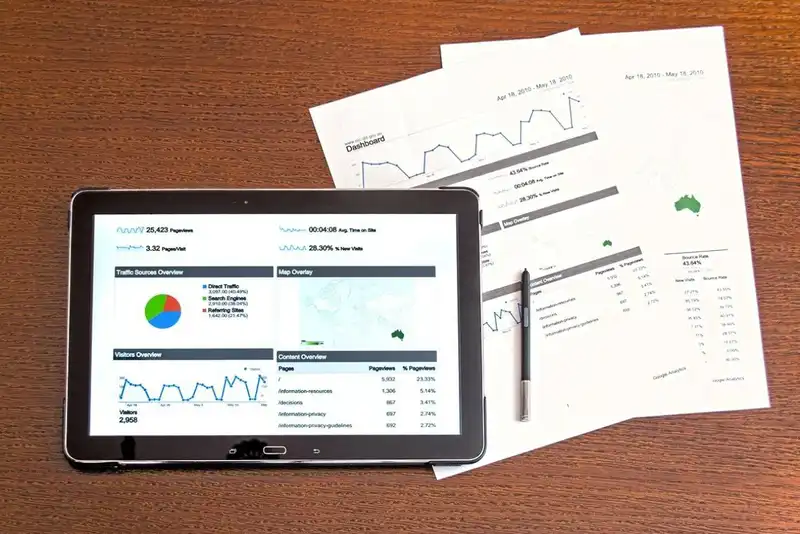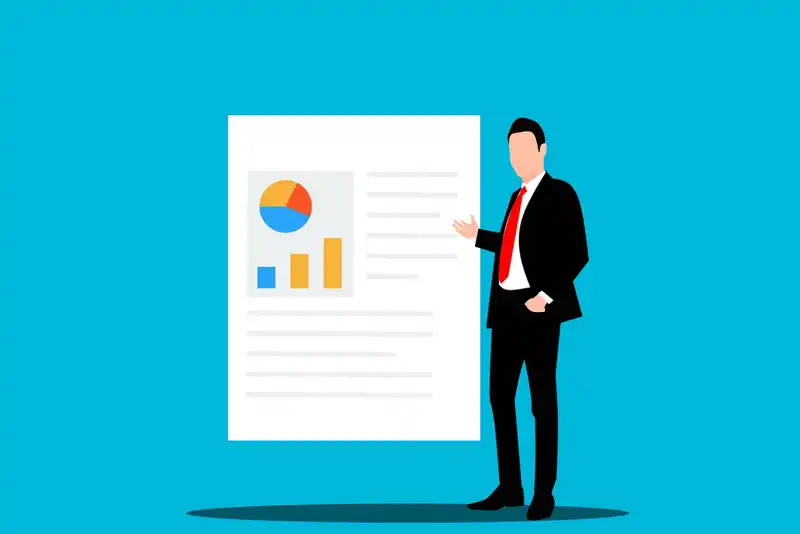How to Find the Right Data Management Platform for Your Business
Why Is Data Management Important?
Data management is the first step to implementing effective data analysis at scale, which can lead to important insights that improve your bottom line. Effective data management can help people across an organization find and access trusted data. Here are some reasons why data management is important for any business-
1. Better visibility- Data management helps increase the visibility of your data assets. Better data visibility makes it easier for people to quickly find the right data. Data visibility helps a business be more organized and productive.
2. More reliability- Data management helps a business reduce potential errors as it puts in place processes and policies for using and building trust in the data being used. A business can respond more efficiently to market changes and customer needs when it has reliable and up-to-date data.
3. Better security- Data management helps a business put in place policies that protect that data from losses, thefts, and breaches by using authentication and encryption tools. Data management also helps protect any personally identifiable information.
4. Better scalability- A business can effectively scale data and its usage with repeatable processes to keep data up to date using data management. A business can avoid the costs of duplication through efficient data management.
Types of Data Management

As data management performs several roles in an organization and makes essential functions easier, there are several types of management techniques. We will now look at the different data management techniques used in a business-
- Data management platforms use data preparation to convert raw data into the format required for data analysis.
- Management platforms use data pipelines to automatically transfer data between two systems.
- Extract, Transform, Load or ETLs are used in data management to transform data from one system for loading it in the data warehouse.
- Data management use data catalogs for metadata management which enables creation of a complete data overview, providing a data summary and also giving easier access to data.
- Data warehouses are places in a data management platform which are used to collate different data sources and have a one point access for data analysis.
- Data governance are a set processes and policies used by data management platforms to maintain data security.
- Data architecture is used in management platforms to provide a proper approach to manage data flow.
- Data security doesn't allow unauthorized access to data in a data management platform and protects data being corrupted.
- Data modeling is used in data management to document the data flow.
Data is the lifeblood of every modern business. It’s also the biggest risk to your company.
Zipschedules provides information on the right data management platform for your business and how it can help you mitigate risks to your company.
What to Look for in a Data Management Platform

A data management platform is a management platform used to collate and activate audience data from first party, second party and third party sources like online, offline, mobile, and other sources. Ad ata management platform DMP is the backbone of data-driven marketing campaigns and helps a business get insights into their customers.
Here are a few points to consider if you are looking to integrate data management platforms into your business-
- Return on investment- If you are opting for a data platform, check if the DMP data will provide an adequate return on investment which includes the up-front cost and the resources needed to implement and maintain the system. Management platforms connect data sources, add structure to the data and help make the data actionable. This helps create higher revenue for any business' inventory, provides more insights into the target audience, and makes better business decisions.
- Data Collection- Before investing in a data management platform, check what kind of data it can handle, organize, and process. Most data management platforms can combine and collate first-party data. But an efficient data management platform DMP should also allow easy access to second party data and third party data and allow data onboarding. Use DMP that collects the most efficient data and gives the most accurate interpretation.
- Parent/Child architecture- Any efficient data management platform should offer a parent/child architecture that allows for separate data sources storage (child account) while also providing an overall picture of the data (parent account). A parent/child architecture is used by agencies who manage multiple clients' data, networks with multiple websites, large marketers with subsidiary brands, and global companies.
- Audience insights- While opting for a management platform, check what kind of DMP data is provided to gather audience insights and analytics. A data management platform also helps gather more accurate customer data about your audience segments. This allows a business to build actionable intel for future marketing campaigns and strategies.
- Campaign optimization- After using DMP data to get your marketing campaigns running, what options does your data management platform offer to make the campaigns work better? Can you manually adjust the campaigns? Are there automated options that will do the hard work? How well do these optimization options work?
- Second-party data marketplace- If your business doesn't have access to enough first-party data, will the data management platform provide access to a second-party data marketplace that allows you to exchange data and connect with participating parties directly.
- Access to third-party data- As a business, you also have to check if your data management platform offers the use of third-party data and does the management platform has a steady supply of third-party sources which include billions of profiles, customer insights, and opportunities.
- Flexibility- Consider the options being offered by a data management company you are opting for, as some data management platforms reduce personalized services as they grow in size. Look for a data management company that responds quickly and professionally and offers a dedicated resource.
- Integration and compatibility- Be sure that the management platform you opt for exports and activate data across the channels you use. If you require that your data can be collected from any source and sent wherever you want it, opt for a management platform with data portability.
How Does a Data Management Platform Work?

As discussed, a data management platform automates the Data Management process and makes it easy for a business to have a central repository for its data and make sure that it is accurate and up-to-date. Data management platforms collect unstructured audience data from data sources like desktop mobile web, mobile app, web analytic tools, point of sale, social, online videos. A data management platform collects more than just surface level data like URL and keyword information.
A data management platform collects first party data the customer data you own and have collected directly based on behaviors such as number of clicks on a video, video downloads or uploads. It also includes demographic data, socio-economic data and action data with the help of first party, second party and third party cookies to provide a holistic profile on target audience.
The information compiled from different tools like online and mobile apps is organized into a single view which makes it easier to understand. A management platform creates such customer profiles to help to improve audience segments, ad campaign, content creation, and personalization.
The creation of customer profiles by data management platforms helps in better understanding of the target audience. A management platform DMPs can send also your audience data to side platforms for demand, and advertisers. This helps the demand side to make more informed decisions on target audiences.
A data management platform is useful for publishers, marketers, and agencies. Data management platforms are used by publishers to manage audience data collected from websites and the data-driven ad campaigns run on the sites. Marketers and agencies use data management platforms to gather an extra layer of data about their target audience to increase the audience base.
What are the basic steps of Data Management Platform?

After discussing the importance of a Data Management platform, let us now look at basic steps of implementing a data management platform for your business-
- Set objectives- A data management platform can help your business identify and gather information about your target audience and accurately target the audiences in the most cost-effective way. Make sure your company has a list of key objectives and goals for your management platform. Identify a goal to work towards, be it data collection or unifying your data silos. Make sure your goals are Smart specific, measurable, attainable, realistic, and time bound.
- Create a team for data management- A business needs a team dedicated to learning the ins and outs of the data management platform. Be transparent with the data management team and outline your goals to them carefully and efficiently. The team should work to make sure that the data management platform works towards the goals outlined by a business.
- Outline strategies- A good data management process works when there is a clear outline for the strategies to be implemented. The questions that should guide your strategy outline are your target audience, how you should price them, how can you market your products to them, what marketing campaigns should be used like digital marketing campaigns or TV campaigns and the training required.
- Implementation- When you start implementing your data driven strategy you will have to categorize behavior, create rules and implement basic audience building. Implementation sets the overall pace for your data management platform outcome and the overall data strategy. The data management platform should help guide your data strategy based on your goals.
- Review- After implementation, there should be a continuous monitoring and review of the progress to make sure it is hitting the goals. Hold regular reviews with the data management teams to find out about any problems or successes.
Managing data can be a real pain.
Zipschedules offers information on data management platforms available on the market today.
Best Data Management Platform for Small Businesses

There are many data management platforms that help a business manage its data. Though data management platforms are mostly used for marketing campaigns, data management is also required in other business operations as well. There is various software that can help a business manage parts of its data. For example, ZipSchedules helps a business manage its employees and their scheduling data.
Let us now look at the top data management platforms that help small businesses manage their overall operations-
1. OnAudience.com- This data management platform helps a small business take full control of the customer data you collect. The management platform is used for collecting, organizing, and activating big data sets from various sources. You can build audience segments based on age, gender, income, interests, or online behavior. You can also share your data with partners.
2. Permutive- It is a data management platform built on patented privacy-preserving technology. The management platform provides stronger first-party data and allows a business to collect and analyze large volumes of data that update in real-time. A business can use DMP to connect directly and securely with other first party data owners without exposing raw data.
3. Oracle Data Cloud- The data management platform helps advertisers connect with the right customer, personalize their interactions, and measure the effectiveness of each engagement. The management platform creates cross-channel consumer understanding so that a business can know more about their customers and their behaviors.
Best Data Management Platform for Medium-sized Businesses

Though the products and services offered by data management platforms remain somewhat same and help companies solve their business problems, medium-sized business features, pricing, setup, and installation may have different requirements. Let us now look at top data management platforms for medium sized business needs-
1. MediaMath- The data management platform empower marketers with an extensible, open platform. The management platform activates data, automates execution, and optimizes interactions across all addressable media. It offers superior performance, transparency and more individualized experiences for consumers.
2. BidTheatre- It is a data management platform that provides effective marketing towards your target audiences, a rich set of targeting options and valuable insights. The management platform uses past impressions to fuel machine learning models that predict the value of future bid opportunities and optimize your media spends and KPIs.
3. Simpli.fi- It is a data management platform that enables clients to perform more efficiently, and maximize ROI on their advertising spend across media types. The management platform provides project management tracking and dashboard, real time scheduling updates and risk analysis, revenue and expense forecasting among other features.
Best Data Management Platform for Large Enterprises

Data management platforms help large enterprises make best use of the massive amounts of data by analyzing data from multiple sources and presenting it in easily digestible ways. Large businesses use DMPs to create rich, custom data sets and more effectively target audience as the management platforms pull in data from multiple sources, including first party software, advertising technology and third party data providers. Let us now look at the top data management platform for large enterprises-
1. Lotame- The United States based data management platform allows publishers, marketers, agencies and platforms to use, analyze, and activate first party target audiences. The management platform empowers a business to extract the maximum value from the data to build a privacy-safe, actionable view of audience segments. The data management platform helps clients grow their businesses, increase performance and respect consumer choices.
2. Roku OneView- It is a data management platform for marketers and content owners to measure performance using TV identity data. Advertisers can manage their entire ad campaigns in one place. The management platform provides data management and analytics platforms that help you to make decisions on behalf of your clients. The management platform helps clients run their ad campaigns based on deep, data driven insights and provides 24x7 support.
3. Adobe Audience Manager- The data management platform helps clients build unique audience profiles and offers 360 degree customer view. The management platform offers integration of online and offline data from first party, second party and third party data sources to deliver a unified view of target audiences.
Data Management is a complicated process.
Zipschedules suggests the right data management platform for your business.


